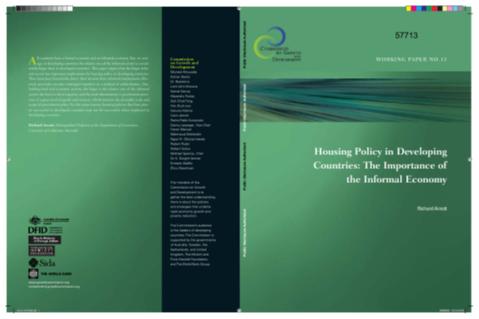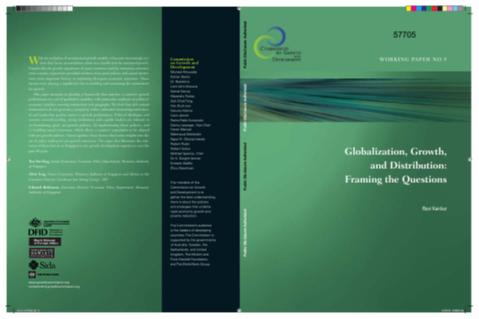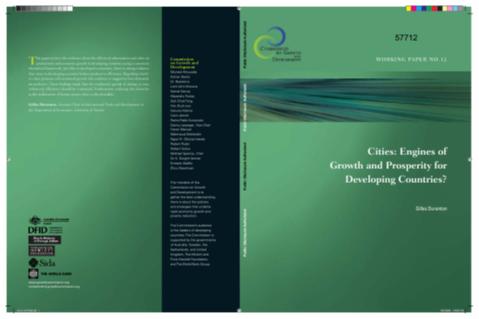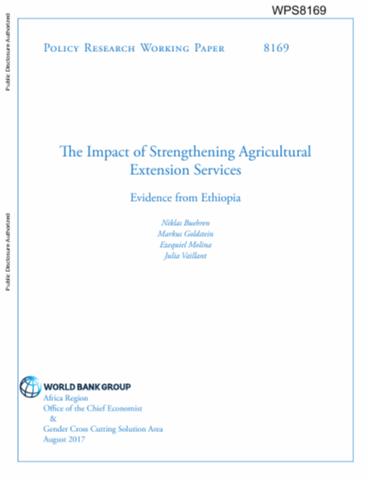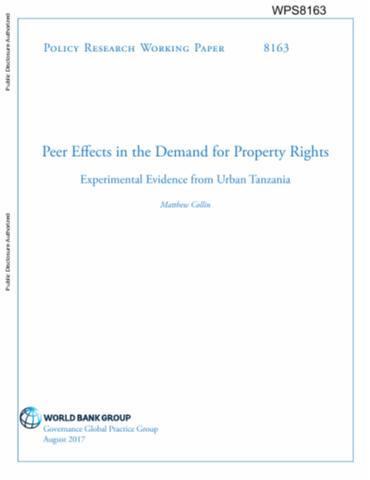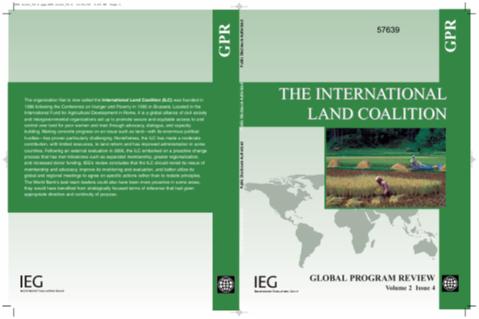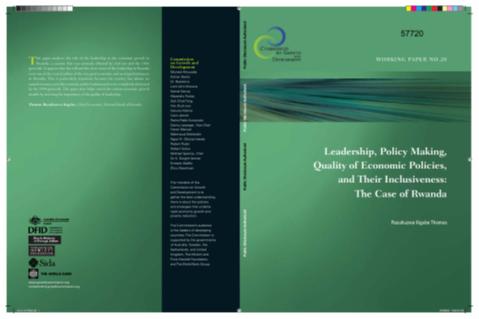
Topics and Regions
Details
Location
Contributions
Displaying 91 - 100 of 630Housing Policy in Developing Countries
All countries have a formal economy and an informal economy. But, on average, in developing countries the relative size of the informal sector is considerably larger than in developed countries. This paper argues that this has important implications for housing policy in developing countries. That most poor households derive their income from informal employment effectively precludes income-contingent transfers as a method of redistribution.
Economic Growth in Egypt
The paper focuses its analysis on the last three decades of the twentieth century. The basic assumption is that Egypt's economic performance during this period was less than satisfactory compared with the most successful examples in the far East and elsewhere. The paper also assumes that Egypt's initial conditions at midcentury compared favorably with the winners in the development race at the end of the century. Egypt has achieved positive progress, no doubt, yet compared with the higher performers in Asia, and given its favorable good initial conditions, the record seems quite mediocre.
Globalization, Growth, and Distribution
In the last two decades, across a range of countries high growth rates have reduced poverty but have been accompanied by rising inequality. This paper is motivated by this stylized fact, and by the strong distributional concerns that persist among populations and policy makers alike, despite the poverty reduction observed in official statistics where growth has been sufficiently high. This seeming disconnects frames the questions posed in this paper. Why the disconnect, and what to do about it?
Cities
This paper reviews the evidence about the effects of urbanization and cities on productivity and economic growth in developing countries using a consistent theoretical framework. Just like in developed economies, there is strong evidence that cities in developing countries bolster productive efficiency. Regarding whether cities promote self-sustained growth, the evidence is suggestive but ultimately inconclusive. These findings imply that the traditional agenda of aiming to raise within-city efficiency should be continued.
The Impact of Strengthening Agricultural Extension Services
This paper evaluates the effect of the Rural Capacity Building Project, which aimed at promoting growth by strengthening the agricultural service systems in Ethiopia and by making them more responsive to smallholders' needs. The project intended to increase the outreach of agricultural extension services to help farmers become aware of and adopt economically viable and environmentally sustainable technologies and practices. The paper examines the impact of the Rural Capacity Building Project using panel data on 1,485 geographically dispersed households in project and control kebeles.
Madagascar
A well-functioning land administration and management system is crucial for Madagascar's economic and social future. Land is implicated in Madagascar's ongoing economic development and social transformation in many important ways, as key a factor in its quest for economic growth, urbanization, transparent decision-making on land-related foreign investments, environment protection, vibrant and sustainable rural communities, political stability, and social cohesion.
Peer Effects in the Demand for Property Rights
This paper investigates the presence of endogenous peer effects in the adoption of formal property rights. Using data from a unique land titling experiment held in an unplanned settlement in Dar es Salaam, the analysis finds a strong, positive impact of neighbor adoption on the household's choice to purchase a land title. The paper also shows that this relationship holds in a separate, identical experiment held a year later in a nearby community, as well as in administrative data for more than 160,000 land parcels in the same city.
The International Land Coalition
The organization, which is now called the International Land Coalition (ILC), was established on January 1, 1996, on the recommendation of the conference on hunger and poverty convened by the International Fund for Agricultural Development (IFAD) in 1995. At first, the organization was called the popular coalition to eradicate hunger and poverty. The ILC itself was formally constituted and launched along with its new name in February 2003.
Greenhouse Emissions and Climate Change
There is no longer any serious debate about whether greenhouse gas emissions from human activity are altering the earth's climate. There is also a broad consensus that efficient mitigation of emissions will require carbon pricing via market based instruments (charges or auctioned tradable permits). The remaining controversies stem mostly from economic and technological forecasting uncertainties, disputes about global and intergenerational equity, and political divisions over collective measures to combat climate change.
Leadership, Policy Making, Quality of Economic Policies, and Their Inclusiveness
This paper analyzes the role of the leadership in the economic growth in Rwanda, a country that was seriously affected by civil war and the 1994 genocide. It appears that the will and the clear vision of the leadership in Rwanda were one of the central pillars of the very good economic and social performances in Rwanda. This is particularly important because the country has almost no natural resources and the economy and its fundamentals were completely destroyed by the 1994 genocide.

